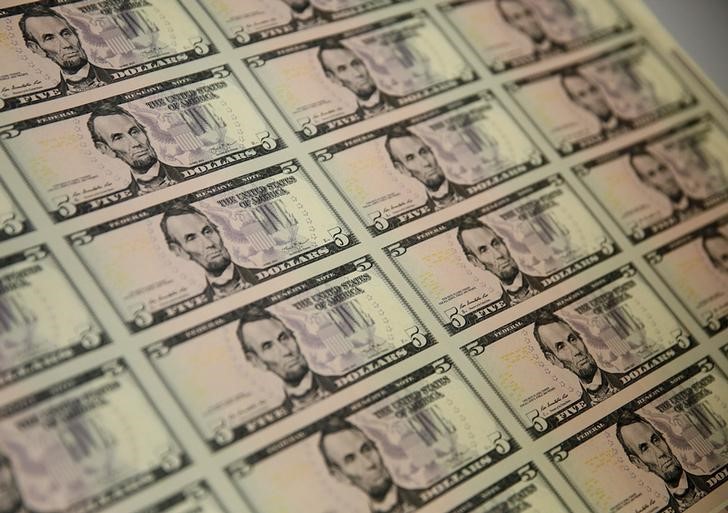Investing.com - The U.S. dollar was broadly lower against other major currencies on Thursday, as Wednesday's mixed U.S. data sparked uncertainty over the pace of future U.S. rate hikes and as a rise in inflation sent U.S. bond yields sharply higher.
The greenback initially strengthened after the U.S. Commerce Department reported on Wednesday that consumer prices rose more than expected in January by 0.5%. Year-over-year, consumer prices increased 2.1% higher, beating expectations for a gain of 1.9%.
Rising inflation would be a catalyst to push the Federal Reserve toward raising interest rates at a faster pace than currently expected.
The dollar's gains were short-lived however, as expectations for a faster pace of rate hikes drove the benchmark 10-Year Treasury yield to a four-year high of 2.928%. If the 10-year Treasury yield reaches 3% it could trigger further market volatility, analysts say.
In addition, a separate report on Wednesday showing that U.S. retail sales fell 0.3% in January, compared to expectations for a 0.2% rise, sparked concerns that the Fed could struggle to raise rates quickly enough to offset inflation pressures.
The U.S. dollar index, which measures the greenback’s strength against a trade-weighted basket of six major currencies, was down 0.30% at 88.64 by 05:15 a.m. ET (09:15 GMT), the lowest since February 2.
USD/JPY was down 0.54% at 106.41, the weakest level since November 11, 2016.
Japanese Finance Minister Taro Aso said on Thursday that he doesn't see current yen moves as being strong or weak enough to warrant intervention, adding that there was no plan now to respond to exchange rate moves.
The safe-haven Swiss franc was als higher, with USD/CHF sliding 0.39% to 0.9257.
Elsewhere, the euro and the pound were stronger, with EUR/USD up 0.28% at 1.2484 and with GBP/USD gaining 0.44% to 1.4059.
The Australian and New Zealand dollars were higher, with AUD/USD rising 0.29% to 0.7950 and with NZD/USD climbing 0.43% to 0.7398.
Earlier Thursday, the Australian Bureau of Statistics said that the number of employed people increased by 16,000 in January, beating expectations for a 15.300 gain.
The unemployment rate ticked down to 5.5% last month from 5.6% in December.
Meanwhile, USD/CAD edged down 0.10% to trade at 1.2478.
